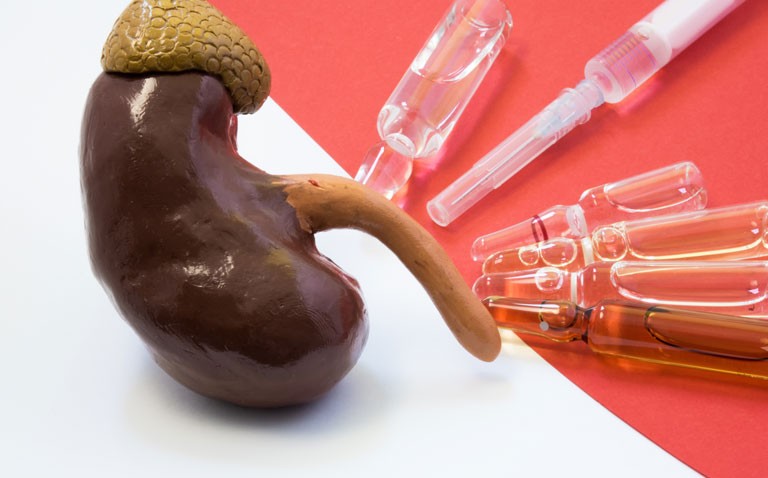Kidney transplant patients with prostate cancer should not be excluded because it does not negatively impact on overall survival.
Kidney transplant patients with prostate cancer still achieve the same benefits in terms of overall survival as those without the cancer, according to the results of a retrospective analysis by researchers from the Division of Nephrology, University Hospitals, Ohio, US. End stage kidney disease (ESKD) which requires maintenance with dialysis or a kidney transplant for survival is associated with an increased risk of death. For example, one retrospective analysis of 242 patients with ESKD, observed an annual mortality rate of 7.4%. Nevertheless, other data has found that the mortality risk from ESKD has actually decreased over the last 15 years although some work indicates how ESKD have higher levels of prostate cancer.
Kidney transplant patients have an improved quality of life compared to those continuing with dialysis but there is uncertainty over whether or not the presence of prostate cancer impacts on mortality risk in those either with ESKD or after transplantation. These were the questions to which the Ohio researchers sought answers in the present study. They turned to the US renal data system and included men aged 40 to 79 years of age with ESKD and took the main exposure to be incident prostate cancer which developed after the initiation of dialysis but before a kidney transplant. Since the clinical characteristics of patients with ESKD and prostate cancer might differ to those without prostate cancer, the researchers used propensity matching with a control group of ESKD patients but without prostate cancer and set the outcomes of interest as the time to kidney transplant and death.
Findings
There were 15,554 patients with ESKD and prostate cancer who were matched with controls, the majority of whom (47%) were aged 70 to 79 years with 42% aged 55 to 69 years. Within the matched cohort, 77.6% of patients with prostate cancer died compared to 77.1% of control patients during a mean follow-up of 3.1 years for those with prostate cancer and 3.5 years for controls. The presence of prostate cancer was associated with a 22% lower likelihood of having a kidney transplant (Hazard ratio, HR = 0.78, 95% CI 0.72 – 0.85) and an 11% higher mortality risk (HR = 1.11, 95% CI 1.08 – 1.14) compared to controls.
However when considering kidney transplant patients and using patients without a prostate cancer and no transplant as the reference point, the hazard ratios for the time to death were 0.20 (95% CI 0.18 – 0.21) for transplant patients with prostate cancer and also 0.20 for transplant patients without prostate cancer.
The authors concluded that the presence of prostate cancer in those with ESDK was associated with only a modest increased risk of death but that once these patients had a kidney transplant, the survival benefits were identical to those without cancer. The suggested the these findings indicate that in kidney transplant patients, the presence of prostate cancer should be a barrier to provision of a new kidney.
Citation
Sarabu N et al. Prostate Cancer, Kidney Transplant Wait Time, and Mortality in Maintenance Dialysis Patients: A Cohort Study Using Linked United States Renal Data System Data. Kidney Medicine 2021










